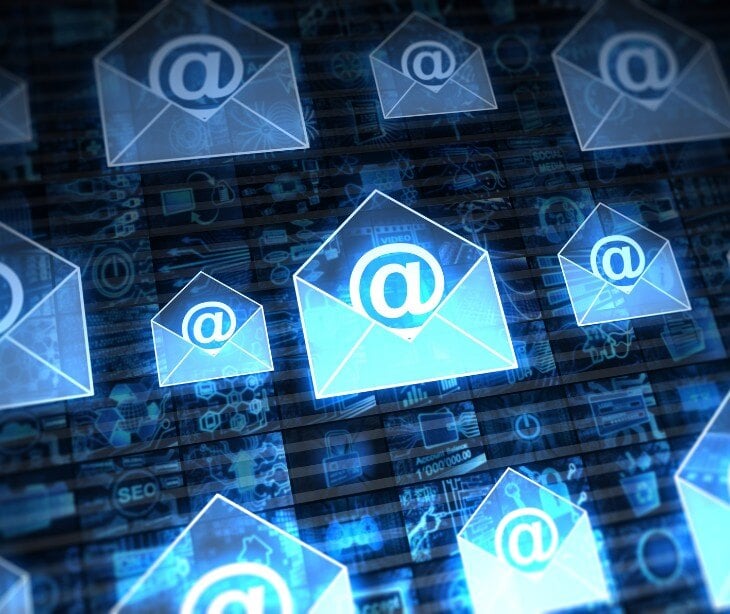2 min read
The intersection of AI and HIPAA compliant communication
Farah Amod
Feb 6, 2025 1:03:32 PM

The intersection of AI and HIPAA compliant communication represents an opportunity for healthcare organizations to improve patient engagement, streamline workflows, and enhance security. However, to fully realize these benefits, organizations must ensure that their AI tools are designed and implemented in a way that meets HIPAA’s stringent privacy and security requirements.
AI and HIPAA
Artificial intelligence (AI) is growing quickly, with the global market valued at $196.63 billion in 2023 and expected to expand rapidly. However, in healthcare, AI’s use isn’t fully regulated under HIPAA, leaving many professionals worried about potential risks like patient data breaches or confidentiality violations. AI isn’t automatically HIPAA compliant, but it can still be helpful if used carefully. To stay compliant, healthcare organizations should ensure AI tools don’t handle protected health information (PHI) directly, de-identify any sensitive data, and have trained staff review all AI-generated content before use. Combining AI with these safeguards allows healthcare to benefit from its efficiency without compromising patient privacy.
The role of AI in healthcare communication
AI technologies are being increasingly adopted in healthcare communication for various purposes such as:
- Automating patient interactions: AI-powered chatbots and virtual assistants address routine inquiries, appointment scheduling, and medication reminders, reducing the administrative workload on healthcare staff.
- Personalizing patient communication: AI enables healthcare providers to deliver tailored health advice and reminders based on individual patient needs. Research published in the Journal of Medical Internet Research reported that personalized communication improved adherence to treatment plans, particularly among patients managing chronic conditions.
- Enhancing clinical documentation: AI-driven tools assist clinicians by transcribing patient encounters and summarizing clinical notes. According to a study in Nurse Journal, this reduces documentation time by up to 30%, allowing providers to dedicate more attention to patient care while maintaining accuracy in records.
Benefits of AI in HIPAA compliant communication
When properly implemented, AI offers several advantages in HIPAA compliant healthcare communication:
Streamlining communication workflows
AI automates routine tasks, allowing healthcare providers to focus on patient care. For example, AI-driven chatbots can manage basic patient inquiries via secure messaging platforms, ensuring compliance with HIPAA’s security requirements.
Enhancing security measures
AI-driven security systems detect unusual activity or potential breaches in real-time, allowing organizations to respond promptly to threats. An article in Healthcare Industry News mentions that "AI’s potential to revolutionize patient care and operational efficiency is undeniable," but its utilization must be accompanied by a commitment to patient privacy and data security.
Best practices for AI implementation in HIPAA compliant communication
Healthcare organizations can adopt several strategies to ensure that AI tools align with HIPAA requirements:
- Conduct comprehensive risk assessments: Risk assessments should evaluate the security, privacy, and operational impact of AI tools before deployment.
- Establish business associate agreements (BAAs): Contracts with AI vendors should define their responsibilities for protecting PHI and addressing breaches.
- Implement security measures: Encryption, multi-factor authentication, and regular system audits can protect ePHI from unauthorized access.
- Provide staff training: Employees should be educated on how to use AI tools securely and comply with HIPAA regulations.
FAQs
Can AI tools automatically ensure HIPAA compliance?
No, AI tools are not inherently HIPAA compliant. Healthcare organizations must configure and implement them with safeguards, such as encryption, data de-identification, and regular audits, to align with HIPAA standards.
What types of patient data are considered PHI under HIPAA, and how should AI tools handle it?
PHI includes any identifiable information related to a patient's health, treatment, or payment history. AI tools should either avoid handling PHI directly or ensure it is properly deidentified to minimize compliance risks.
What role can AI play in improving patient engagement while maintaining HIPAA compliance?
AI can enhance patient engagement by delivering personalized health advice, automating appointment reminders, and addressing routine inquiries. When implemented on secure platforms, AI tools ensure patient data privacy while improving communication efficiency.
How can organizations assess the risks of implementing AI in healthcare communication?
Organizations should conduct comprehensive risk assessments to evaluate the AI tool’s potential impact on data security, patient privacy, and operational workflows. The process includes testing for vulnerabilities, reviewing vendor compliance certifications, and ensuring alignment with HIPAA guidelines.
What should healthcare organizations include in business associate agreements (BAAs) with AI vendors?
BAAs should specify the vendor’s responsibilities for safeguarding PHI, including data encryption, breach notification protocols, and adherence to HIPAA standards. They should also define the consequences of noncompliance and require regular security updates.


%20-%202025-01-08T222204.625.jpg)

